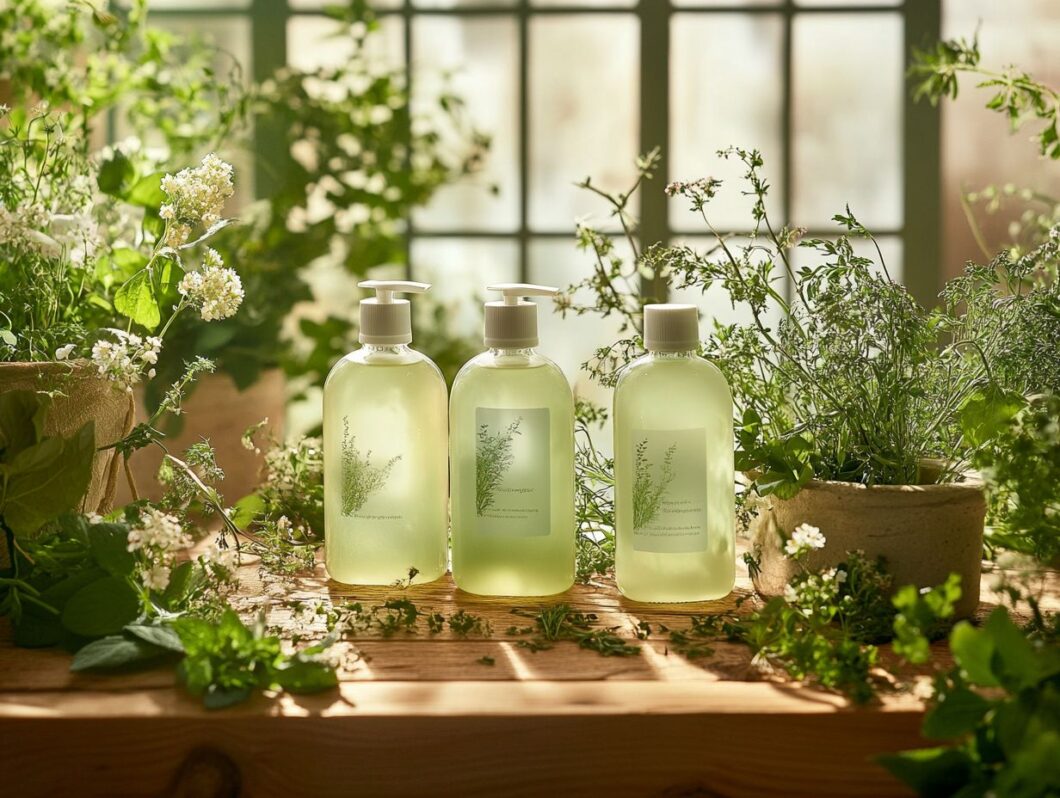In today’s world, where the beauty industry faces increasing scrutiny, the significance of non-toxic haircare is paramount. Traditional haircare products frequently contain harmful chemicals that can adversely affect both hair health and the environment.
This guide will delve into the toxic ingredients to avoid, highlight the benefits of adopting non-toxic alternatives, and provide practical tips for making the transition. Furthermore, it will offer DIY recipes and recommend top non-toxic brands to assist you in achieving healthier hair while contributing to a healthier planet.
Engaging with this guide will empower you to treat your hair with the care it deserves.
Key Takeaways:
The Importance of Non-Toxic Haircare
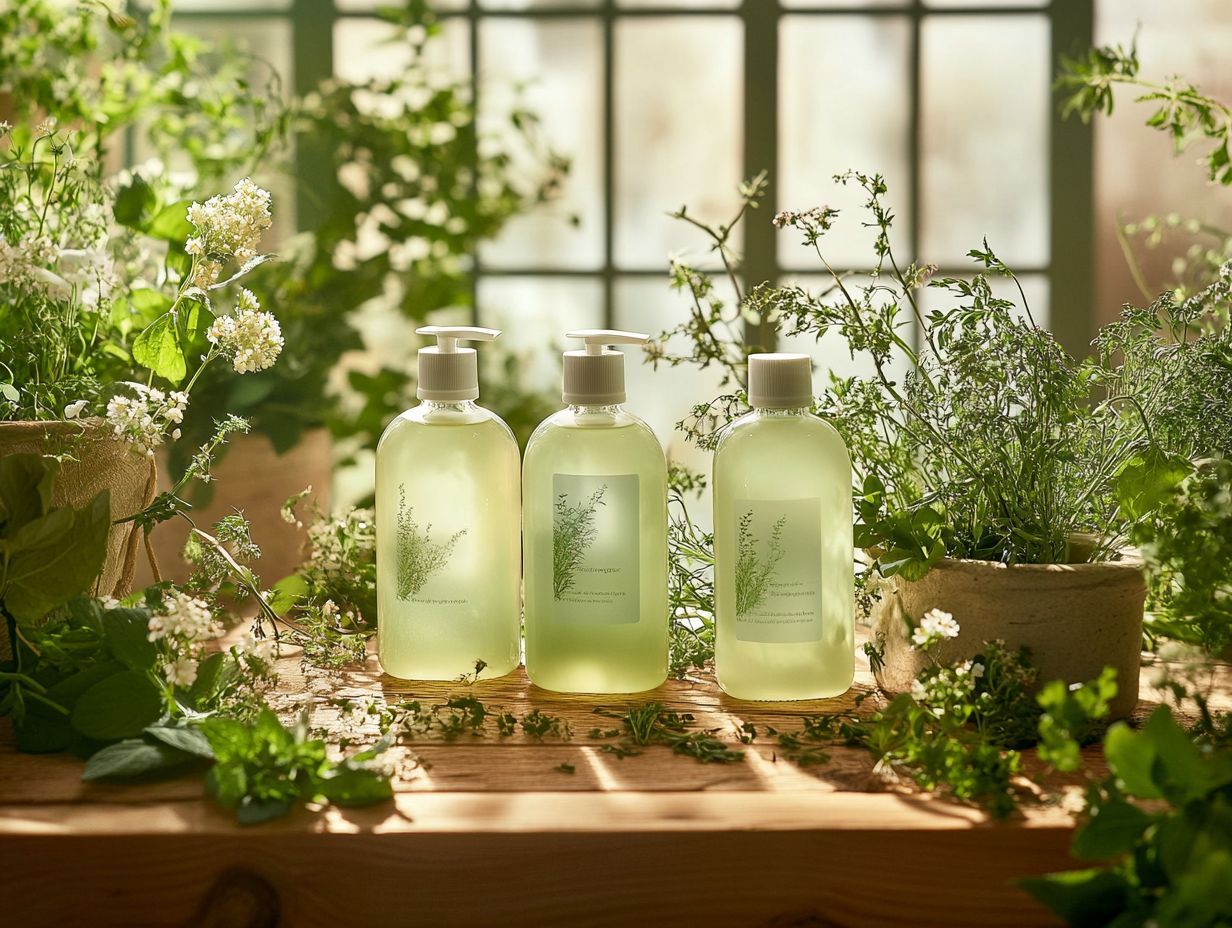
In today’s beauty landscape, I recognize that the importance of non-toxic haircare is paramount. With growing awareness of the harmful effects associated with traditional hair products, I find that many individuals are prioritizing clean beauty options that not only enhance the aesthetic appeal of their hair but also promote overall hair health.
This shift is driven by a desire for healthier hair, a commitment to eco-friendly practices, and an increasing demand for transparency from hair brands regarding their ingredients. As consumers become more informed about toxic ingredients and their potential effects, it is clear that the need for non-toxic hair products that align with sustainable beauty values has emerged as a key focus within the beauty community.
Why Traditional Haircare Products Can Be Harmful
I recognize that traditional haircare products often contain toxic ingredients that can cause various forms of hair damage and scalp issues, ultimately undermining hair growth and overall wellness.
Many of these products are filled with sulfates, parabens, and synthetic fragrances, which can strip my hair of its natural oils, resulting in dryness and brittleness. Additionally, ingredients like formaldehyde and artificial colorants have been associated with allergic reactions and scalp irritation, exacerbating problems such as dandruff and itchiness.
Over time, these factors not only impede my hair’s ability to grow but can also lead to weakened strands that break easily. Given the increasing awareness of these damaging effects, I find that more individuals, including myself, are gravitating towards natural and organic alternatives that promote healthier hair and scalp, creating an environment conducive to robust hair growth and overall vitality.
Common Toxic Ingredients to Avoid
In navigating the world of haircare, I recognize the importance of being aware of common toxic ingredients that can compromise hair health and wellness.
Ingredients such as sulfates and parabens, frequently found in conventional hair treatments and masks, should be approached with caution.
Sulfates, Parabens, and Other Harmful Chemicals
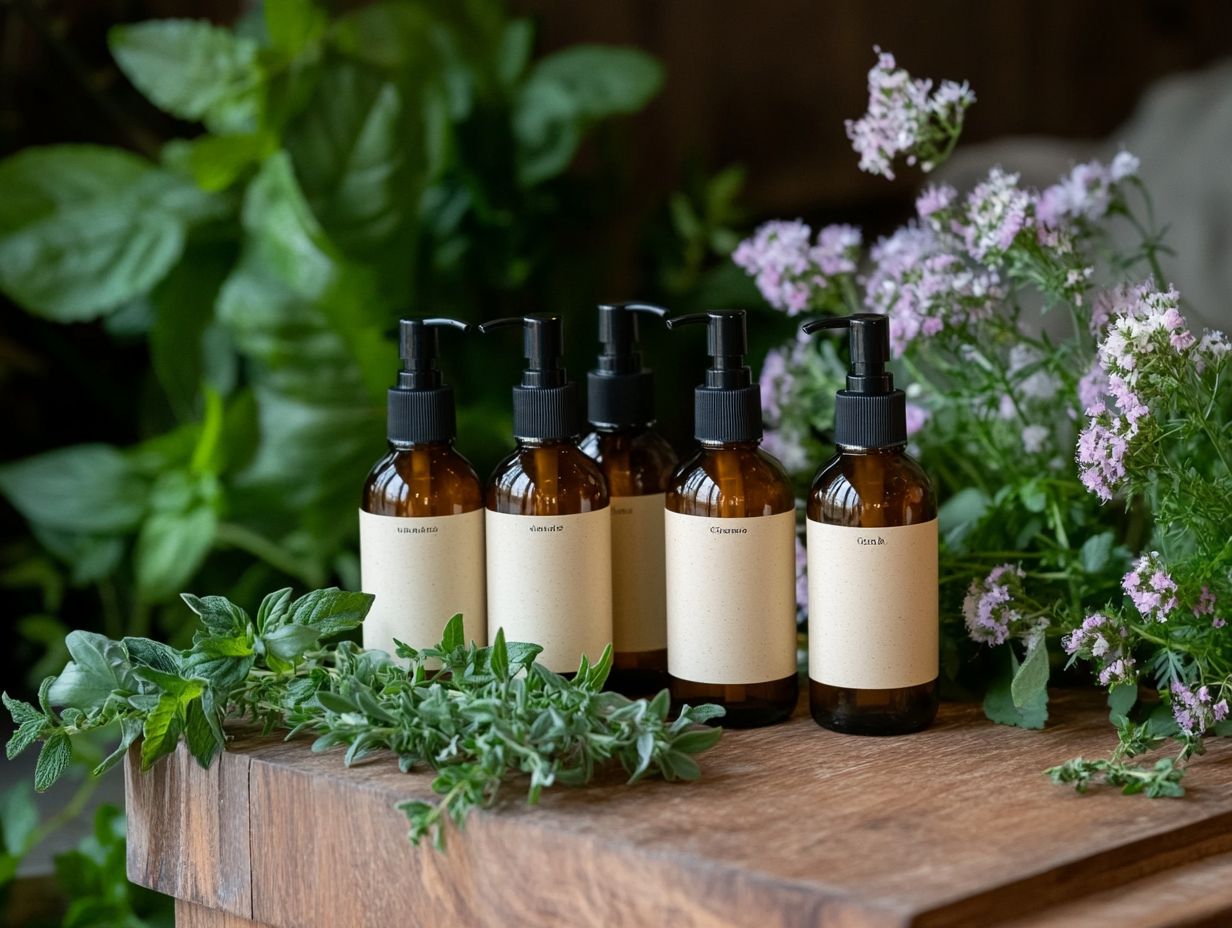
Sulfates and parabens are two of the most harmful chemicals frequently found in hair products, and I recognize the significant damage they can inflict on hair and scalp health.
These substances serve as foaming agents and preservatives, but they also strip the natural oils from the scalp and hair, resulting in dryness and increased susceptibility to breakage. I have seen that sulfates can cleanse effectively, but they may irritate sensitive skin, causing redness and itchiness. Parabens, in contrast, raise concerns regarding their potential links to hormonal disruptions.
For individuals seeking healthier alternatives, I recommend opting for hair products formulated with organic ingredients. These cleaner options tend to be gentler on both the scalp and hair, promoting overall well-being and minimizing the risk of adverse reactions. Moreover, they provide the hydration and protection that hair truly needs.
Benefits of Using Non-Toxic Haircare
Switching to non-toxic haircare provides numerous benefits, including healthier hair, enhanced shine, and improved moisture restoration.
These factors all contribute to a significantly better hair wellness routine.
Healthier Hair and Scalp
I advocate for non-toxic haircare, which promotes healthier hair and scalp by utilizing nourishing ingredients tailored to various hair types, often packaged in eco-friendly materials.
By harnessing the benefits of plant-based components, these products not only eliminate harmful chemicals but also deliver essential nutrients that foster scalp and hair health.
I appreciate that individuals with diverse hair textures can find customized solutions designed to address their specific needs, whether they require hydration for dry hair or strength for fine strands.
Choosing brands that prioritize sustainability through innovative packaging helps to reduce environmental impact, aligning personal care with eco-conscious living. This mindful approach allows me to care for my hair while contributing positively to the planet.
Reduced Environmental Impact
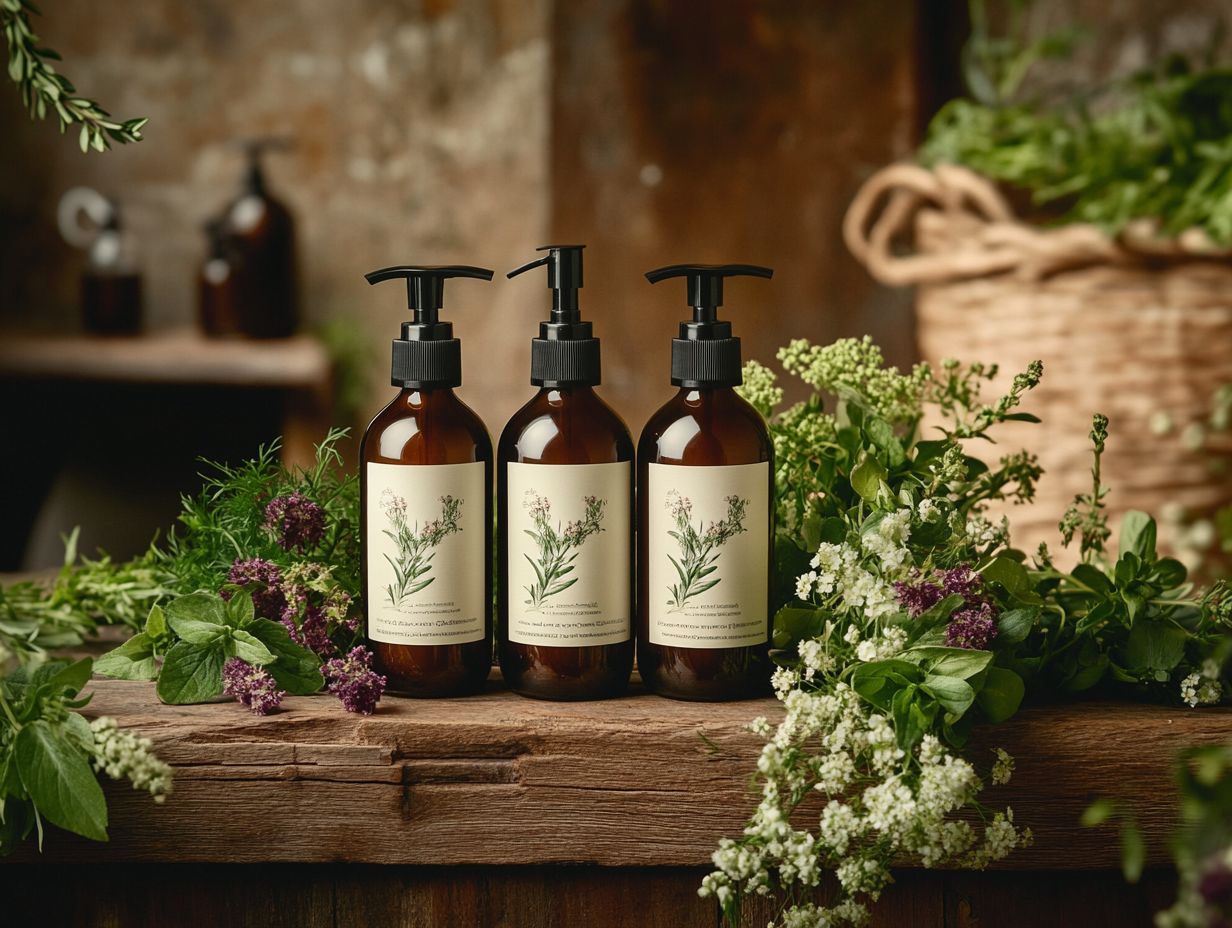
One of the primary advantages I see in transitioning to non-toxic haircare is the reduced environmental impact. Many brands prioritize sustainable beauty practices and eco-friendly packaging to address the issue of plastic waste.
By choosing these alternatives, I not only contribute to a cleaner planet but also support companies that are genuinely committed to environmental stewardship.
For example, brands like Ethique and Lush offer solid shampoo bars that eliminate the need for plastic bottles, while companies such as Love Beauty and Planet utilize recycled materials for their packaging.
Additionally, many of these products incorporate biodegradable ingredients that break down more naturally and help reduce pollution.
Ultimately, selecting non-toxic haircare is a significant step towards fostering a more sustainable beauty industry, where each purchase can lead to a positive impact.
How to Transition to Non-Toxic Haircare
Transitioning to a non-toxic haircare routine can be a smooth process. I focus on gradually replacing conventional hair products with clean beauty alternatives that align with my hair wellness values.
Tips for Switching Products and Routines
Transitioning to non-toxic products necessitates a strategic approach to my hair care routine. I must select clean hair products that directly address my specific hair concerns while also considering the right hair styling tools.
To embark on this journey, I find it beneficial to analyze my hair type and identify any particular issues I may be facing, such as dryness, frizz, or the needs of color-treated hair.
Reading ingredient labels is essential; I look for certifications that confirm the absence of harmful chemicals. Additionally, gathering insights from community feedback or expert reviews helps me gauge the efficacy of the products I consider.
Once I have curated a selection of suitable non-toxic products, integrating them into my routine becomes a seamless process. Pairing these products with the right tools, such as heat protectant brushes or eco-friendly styling devices, can further enhance the health and appearance of my hair, allowing me to achieve the desired results without compromising safety.
DIY Non-Toxic Haircare Recipes
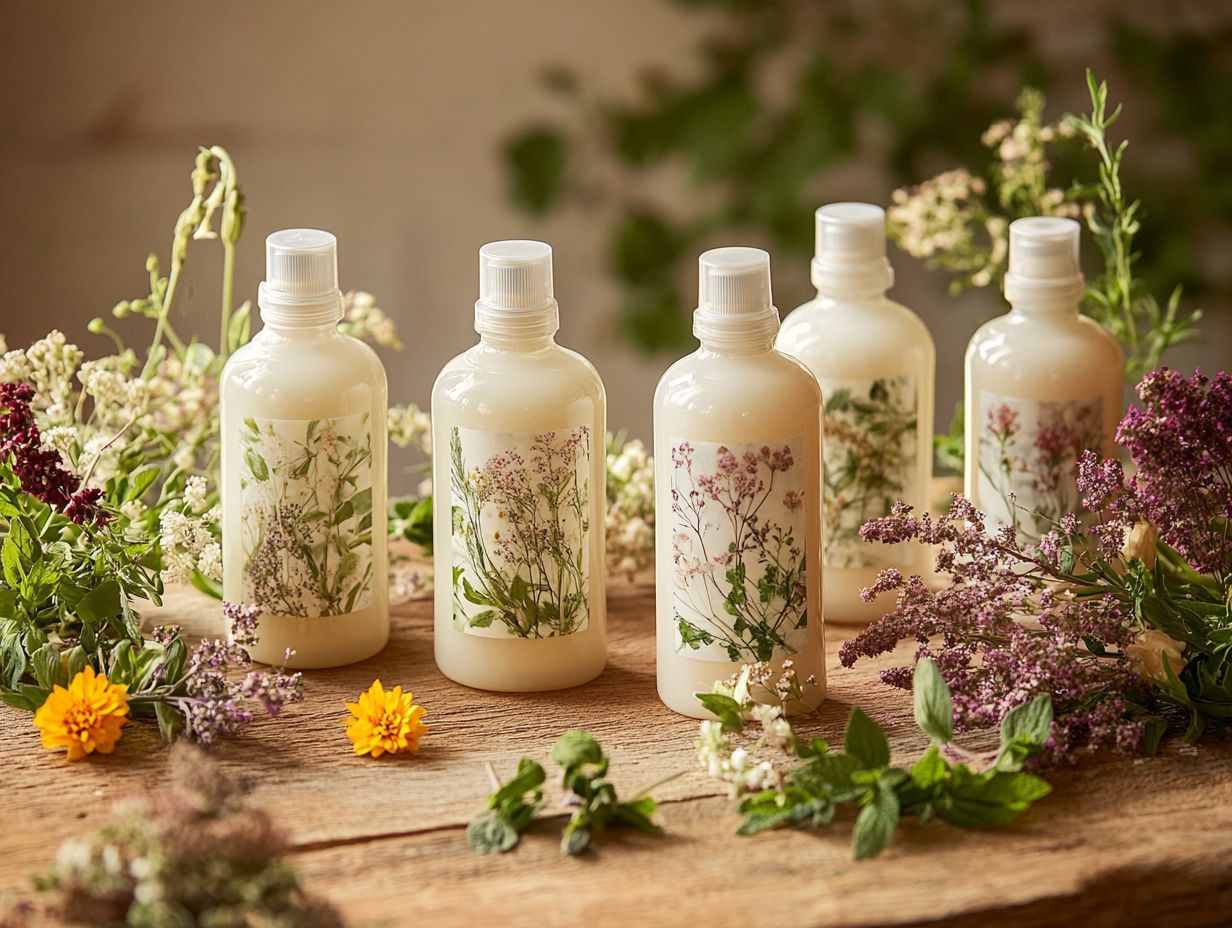
Creating DIY non-toxic haircare recipes has proven to be both an enjoyable and fulfilling endeavor for me.
It allows me to incorporate natural alternatives to store-bought products by utilizing plant-based ingredients that effectively nourish and protect my hair.
Natural Alternatives to Store-Bought Products
I find that natural alternatives to store-bought products can provide effective solutions for hair treatments, utilizing organic ingredients that promote healthy hair and enhance my hair care routine.
These alternatives address specific hair concerns, such as dryness, frizz, or lack of shine, while steering clear of potentially harmful chemicals commonly found in many commercial products.
For example, I often use coconut oil as a deep conditioner or aloe vera gel as a styling aid, both of which profoundly nourish and hydrate my hair. By regularly incorporating these organic options, I not only support the overall health of my hair but also achieve a more vibrant and manageable mane over time.
Transitioning to these natural solutions allows me to cultivate a personalized hair care regimen that aligns with my values and enhances the overall well-being of my hair.
Brands and Products to Try
I am proud to see a remarkable selection of hair brands at the forefront of the clean beauty movement, providing cruelty-free and vegan products that address a variety of hair types and concerns.
Non-Toxic Haircare Brands and Their Best Products
Brands such as Rahua, Innersense Organic Beauty, and Briogeo are leading the charge in the non-toxic haircare movement, providing clean hair products that significantly enhance overall hair health.
These companies prioritize the use of natural ingredients, carefully avoiding the harmful chemicals commonly found in conventional haircare solutions. For example, Rahua sources its ingredients sustainably from the Amazon rainforest, focusing on unique formulations that restore and invigorate hair.
Innersense Organic Beauty takes a different approach by emphasizing gentle, organic components that promote the vitality of both the scalp and hair, resulting in long-lasting shine and strength. Similarly, Briogeo combines powerful botanicals and vitamins tailored to address a variety of hair types, ensuring their products meet diverse consumer needs.
Each brand effectively harnesses the inherent benefits of non-toxic alternatives, creating products that nourish the hair while prioritizing environmental sustainability and consumer safety.


